Business Bookkeeping Services
We’re experts in small business bookkeeping services, passionate about simplifying your financial operations.
We know the challenges you face and offer tailored solutions to meet your needs. We empower our clients, providing clear financial insights for decision making.
We’re not just service providers, we’re your trusted financial partners, committed to helping your business reach new heights.

- Bookkeeping
- Payroll
Book a time to chat or give us a call anytime. Let’s spend 20-30 minutes chatting it up about your business and see what’s going on!
Key Takeaways
- Small business bookkeeping is crucial for tracking financial transactions, preparing financial statements, and improving cash flow.
- Choosing the right bookkeeping service requires analyzing specific business needs, expertise, and cost considerations.
- Setting up a separate business bank account, choosing the appropriate bookkeeping method, and integrating bookkeeping software are important steps in small business bookkeeping.
- Outsourcing bookkeeping services offer cost efficiency, access to expertise, time savings, scalability, and flexibility for small businesses.
Understanding Small Business Bookkeeping
In our journey to provide top-notch bookkeeping services, we’ve found that understanding small business bookkeeping is the first crucial step. It’s not just about crunching numbers; it’s about gaining insights into your business’s financial health.
To master small business bookkeeping, you need to appreciate its core components. First, there’s the recording of financial transactions, a task that demands precision and a keen eye for detail.
Next, we’ve the preparation and analysis of financial statements. This involves interpreting the data to reveal trends and patterns that can inform strategic decisions.
Inventory management is another critical facet. It’s about tracking what you have, what you’ve sold, and what you need to order. Done right, it can greatly improve your cash flow.
Lastly, we should mention payroll, a complex process that requires a solid understanding of tax laws and employee benefits. Proper handling of payroll is essential not just for your bottom line, but for maintaining trust and morale among your staff.
In essence, understanding small business bookkeeping is about more than keeping your books balanced. It’s about using that financial data to guide your business towards sustainable growth.
Importance of Bookkeeping for Small Businesses
Building on our understanding of small business bookkeeping, we’re now going to delve into why it’s so crucial for your business’s success. Bookkeeping isn’t just an administrative task; it’s a strategic tool that can provide a wealth of insights.
Financial Analysis and Management: Bookkeeping gives you a clear picture of your financial position. It helps to manage cash flow, ensuring you can meet financial obligations, reinvest in your business, and plan for growth.
Tax Compliance: Accurate bookkeeping ensures you’re recording and reporting all necessary information for tax purposes. This avoids penalties and ensures you’re benefiting from any available deductions or credits.
Informed Decision Making: With a well-maintained bookkeeping system, you have access to real-time financial data. This aids in making strategic decisions, such as identifying profitable aspects of your business or areas that need improvement.
In essence, effective bookkeeping is a prerequisite for a thriving small business. It provides a detailed, accurate picture of your financial health, ensures compliance, and aids in strategic decision making. If you’re not giving bookkeeping the attention it deserves, you’re potentially missing out on these vital benefits.
Different Types of Bookkeeping Services
Let’s dive into the various types of bookkeeping services that can help streamline your small business operations.
Firstly, we’ve the single-entry system which is simple and suitable for small businesses with minimal transactions. It involves recording primary transactions like sales, purchases, and expenses.
Next, there’s the double-entry system, which is more complex and provides a more accurate financial picture. Every transaction affects two accounts: debits in one account and credits in another. It’s essential for medium to large businesses.
Thirdly, you might consider virtual bookkeeping services. They offer remote access to bookkeeping software, online communication, and storage of financial data. This is a great choice for businesses looking to digitize their operations.
Finally, there are specialized bookkeeping services. These cater to specific industries or types of transactions. For example, tax bookkeeping focuses on preparing and filing business taxes, while payroll bookkeeping manages employee compensation and benefits.
Choosing the Right Bookkeeping Service
After exploring various types of services, we’ve got to identify the right bookkeeping service that’ll best meet our specific business needs. The selection process involves a detailed analysis to ensure the service aligns with our business model, budget, and long-term goals.
Understand the Scope: First, we need to determine the extent of the services we require. This could range from simple data entry and payroll management to complex financial analysis and forecasting. Clear understanding of our needs will help in selecting a service that’s equipped to meet them.
Check the Expertise: The bookkeeping service should have a proven track record in your industry. They should understand the specific challenges and unique requirements of our business sector. Their expertise will be crucial in providing insights that can drive business growth.
Evaluate the Cost: Lastly, we must consider the cost of the service. While we shouldn’t compromise on quality, the service should fit within our budget. It’s important to ensure we’re getting value for our money.
Choosing the right bookkeeping service isn’t just about hiring someone to manage our finances. It’s about partnering with professionals who can provide strategic guidance to help our business thrive.
Setting Up Your Small Business Bookkeeping
Now that we’ve chosen the right service, we’re ready to start setting up our small business bookkeeping system.
The first step is to open a business bank account separate from your personal one. This separation allows for a clear distinction between business and personal expenses, making it easier to track income and expenses.
Next, we’ll select a bookkeeping method. There are two primary methods: the cash method, which records transactions when money changes hands, and the accrual method, which records transactions when they’re incurred, regardless of payment. The size and nature of your business will determine which method suits you best.
Integrating our bookkeeping system with an accounting software is crucial. It automates the process and reduces the risk of errors. We’ll set up our chart of accounts, a list of categories for organizing our transactions. This includes income, expenses, assets, liabilities, and equity.
Finally, we’ll establish a routine for updating our books. It could be daily, weekly, or monthly, but regularity is key. This habitual updating enables us to monitor our financial health, make informed decisions, and prepare for tax time without stress.
Setting up a bookkeeping system might seem daunting, but with careful planning and the right tools, it becomes a manageable task.
Navigating Through Bookkeeping Software
Understanding how to navigate through bookkeeping software is the next crucial step we’re taking in setting up our small business bookkeeping system. With an array of software options available, it’s essential that we master the one that best suits our needs.
Software Selection: First, we need to choose a software that aligns with our business structure. This could be a basic spreadsheet program for a sole proprietorship, or a more complex system like QuickBooks for larger businesses.
Interface Familiarization: Once we’ve chosen our software, we need to become familiar with its interface. This includes understanding the dashboard, where we’ll find key financial information, and learning how to input and categorize transactions.
Reporting: Finally, we must learn how to generate and interpret reports. This feature allows us to keep track of income, expenses, and overall business performance.
Mastering these three aspects of bookkeeping software will empower us to maintain accurate financial records, thereby facilitating informed business decisions.
As we navigate through the software, remember, practice makes perfect. With continual use, we’ll gain confidence and proficiency, ensuring our bookkeeping process isn’t just efficient but also effective.
Bookkeeping Strategies for Profit Maximization
We’ll now delve into bookkeeping strategies that can help us maximize our profits. As small business owners, it’s crucial to have a clear understanding of our financial status. A well-organized, accurate bookkeeping system allows us to make informed decisions that contribute to profit growth.
One strategy is to monitor our expenses closely. By categorizing our expenses, we can identify where we’re spending the most and look for ways to cut costs. We can also use our bookkeeping records to track income trends. Recognizing periods of high revenue can help us strategize for future growth.
An effective bookkeeping system can also assist us in tax planning. By keeping track of deductible expenses and credits, we’re able to reduce our tax liability which in turn increases our profits.
Lastly, don’t underestimate the value of time in bookkeeping. Automated bookkeeping services can save us hours of manual entry, freeing us to focus on revenue-generating activities.
Avoiding Common Bookkeeping Mistakes
To ensure we’re maximizing profits effectively, it’s essential we avoid the three most common bookkeeping mistakes that small businesses often fall victim to. These are:
Inadequate Record Keeping: It’s crucial to record every financial transaction. Failing to do so can lead to inaccurate financial reports, thus impacting our ability to make informed decisions. We must maintain receipts, invoices, and other documents meticulously.
Ignoring Reconciliation: Reconciliation involves comparing our records with bank statements to ensure they’re consistent. Without regular reconciliation, discrepancies might go unnoticed, leading to financial mismanagement. We recommend setting a regular schedule for this critical task.
Mixing Personal and Business Finances: This is a common pitfall for many small business owners. It’s essential to separate these finances to ensure clear visibility of our business performance.
By avoiding these mistakes, we can ensure that our financial data is accurate and reliable. This will help us make well-informed decisions, maximize profits, and ensure the long-term success of our business.
Let’s not forget, effective bookkeeping isn’t just about recording transactions; it’s about interpreting and understanding the financial health of our business.
Evaluating Your Bookkeeping Performance
After steering clear of common bookkeeping mistakes, it’s now time for us to evaluate our bookkeeping performance, which is vital in maintaining our business’s financial health. A regular performance evaluation allows us to identify weaknesses and make necessary improvements.
Here’s a simple method we can use to evaluate our bookkeeping performance:
| Key Indicator | Target | Actual |
|---|---|---|
| Accuracy | 100% | 98% |
| Timeliness | 100% | 95% |
| Completeness | 100% | 96% |
| Relevance | 100% | 97% |
The ‘Key Indicator’ column represents the performance standards we should aim for. ‘Target’ is the ideal performance we wish to achieve. ‘Actual’ is our current performance.
If there’s a significant gap between the ‘Target’ and ‘Actual’, it’s an indication that we need to review our bookkeeping practices. For instance, if our accuracy is less than 100%, we need to identify the causes of the errors and rectify them.
Hiring a Professional Bookkeeping Service
In our pursuit of financial accuracy and efficiency, it’s often beneficial to consider hiring a professional bookkeeping service. These professionals bring a wealth of knowledge, expertise, and experience to the table, ensuring that every financial aspect of our business is meticulously managed.
Cost-effectiveness: Hiring a professional service may seem like a significant expense initially, but when we consider the time saved and the potential for error reduction, it’s a worthy investment. It enables us to focus on what we do best – running our business.
Access to Expertise: These professionals are well-versed in accounting standards, tax laws, and financial management. They can provide valuable insights and advice, helping us to make informed decisions.
Scalability: As our business grows, so do our financial responsibilities. A professional bookkeeping service can adapt to our changing needs, providing more comprehensive services as required.
In essence, hiring a professional bookkeeping service isn’t just about keeping our books in order. It’s about leveraging their expertise to improve our financial management, make strategic decisions, and ultimately, drive our business growth.
Advantages of Outsourced Bookkeeping Services
Continuing our exploration, let’s delve into the advantages that outsourced bookkeeping services bring to our business. As we aim for mastery, it’s essential to consider how this strategic decision can elevate our operations and contribute to our success.
Consider this table detailing some key benefits of outsourcing:
| Benefit | Description | Potential Impact |
|---|---|---|
| Cost Efficiency | Outsourcing can reduce costs associated with hiring, training, and maintaining in-house staff. | Increased financial flexibility and profitability. |
| Access to Expertise | Service providers specialize in bookkeeping. They understand the complexities and stay updated on regulations. | Ensures accurate, compliant financial records. |
| Time Savings | Outsourcing frees up time that can be devoted to core business activities. | Improved operational efficiency and potential for growth. |
| Scalability | Service providers can easily adjust to accommodate business growth or contraction. | Flexibility to adapt to changing business needs. |
Outsourced bookkeeping, therefore, offers advantages that extend beyond mere cost savings. It provides us with access to specialized expertise, enables us to focus on our core business, and offers scalability. We’re not just outsourcing a task; we’re strategically aligning our resources for optimal business performance. By doing so, we’re positioning our business for success, demonstrating the power of outsourced bookkeeping.
Future of Small Business Bookkeeping
Let’s shift our focus now to the exciting future of small business bookkeeping services. The landscape of bookkeeping is evolving rapidly, shaped by technological advancements and changing business needs.
Automation: We’re seeing an increasing trend towards automation. This doesn’t mean the role of the bookkeeper is diminishing. Instead, it’s morphing into a more strategic and advisory role. Automation software frees up time spent on routine tasks, allowing bookkeepers to provide more value-added services such as financial analysis and business advice.
Integration: The future of bookkeeping lies in integrated systems. This refers to the harmonization of various software solutions used by a business, such as invoicing, payroll, and tax software. This reduces data entry errors and increases efficiency.
Cloud-Based Services: The adoption of cloud-based bookkeeping services is expected to continue to grow. This allows real-time access to financial data from anywhere, fostering better decision making and improved business agility.
As we move into the future, small business bookkeeping services will no longer be just about financial record-keeping. They’ll be about providing valuable insights and strategic advice, helping businesses navigate the complexities of finance and achieve their goals.
The future is indeed exciting!
Frequently Asked Questions
What Are Some Specific Tax Considerations for Small Businesses in Relation to Bookkeeping?
We’re considering tax aspects for small businesses, focusing on deductions, quarterly payments, and self-employment taxes. Proper bookkeeping ensures accurate tracking of expenses, income, and potential tax liabilities, making tax time less stressful.
How Can Bookkeeping Services Help in Securing Loans or Investments for My Small Business?
We’re equipped to provide accurate financial records, demonstrating your business’s profitability. This can increase trust with lenders or investors, making it easier for you to secure loans or investments for your business.
Can a Bookkeeping Service Handle Payroll and Employee Benefits Administration for My Small Business?
Absolutely, we’re equipped to manage payroll and benefits administration. It’s part of our comprehensive suite of services designed to simplify all facets of financial management for our clients.
How Does the Integration of E-Commerce Platforms Into Bookkeeping Services Work?
We’re integrating e-commerce platforms into bookkeeping services by automating data entry. This streamlines sales, inventory, and customer data, ensuring accuracy and real-time updates. It’s a tech-driven approach to traditional bookkeeping tasks.
What Are the Implications of International Transactions on Small Business Bookkeeping?
We’ve noticed that international transactions can complicate small business bookkeeping due to factors like exchange rates and foreign tax laws. It’s vital to understand these implications to maintain accurate financial records.
Conclusion
By understanding your business, providing clear financial insights, and simplifying complex tasks, we empower you to make informed decisions.
As your trusted financial partners, we’re committed to helping you navigate the financial landscape and reach new heights.
Together, we can shape the future of small business bookkeeping.
Let’s make your business thrive.



